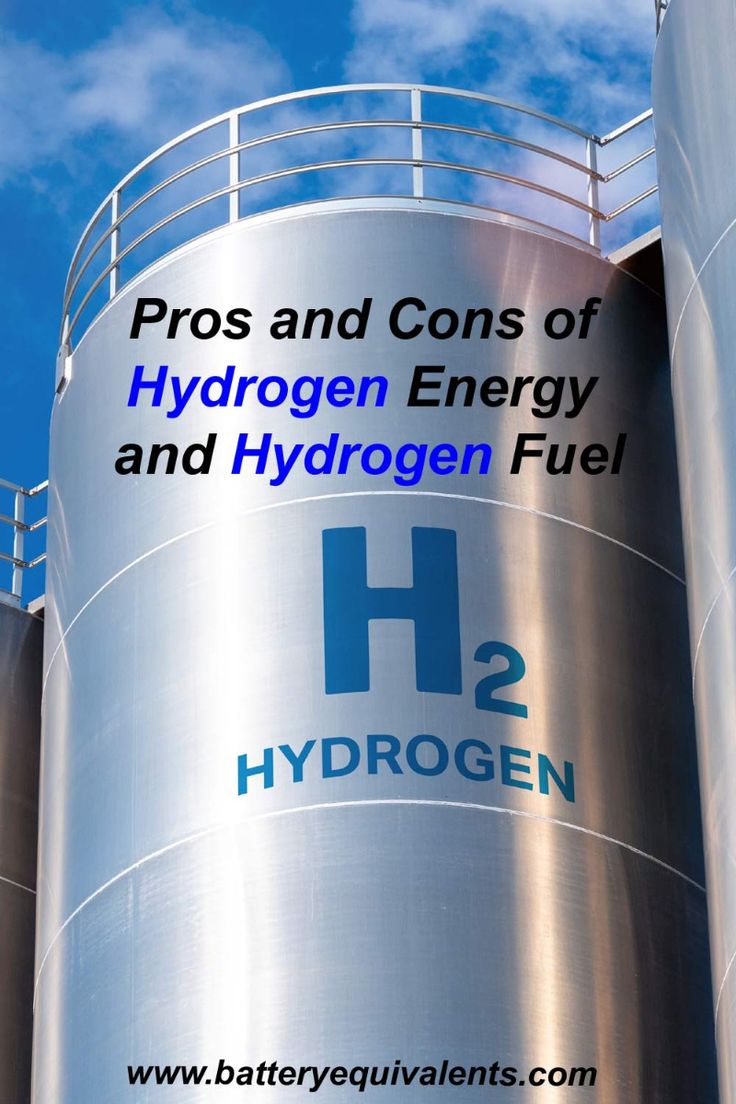Hydrogen Energy: The Future of Clean Energy
Hydrogen Energy: The Future of Clean Energy
Today, I am presenting to you a unique and comprehensive piece on hydrogen energy, being written for the first time in the world. This writing will tell you how hydrogen energy is quietly emerging as a powerful solution for transportation, manufacturing, and sustainable economies. If you like this material, please let us know, and if you need more details on any specific topic, you can contact us.
Hydrogen energy has initiated a revolutionary transformation in the global energy landscape. It is the only energy source that is not only clean but also highly efficient. The fundamental principle of using hydrogen as an energy carrier is based on its chemical properties. When hydrogen combines with oxygen, the process produces electricity and only water, releasing no harmful waste. This characteristic of hydrogen makes it the best alternative to fossil fuels. There are various methods of obtaining hydrogen energy, including green hydrogen, blue hydrogen, and gray hydrogen. Green hydrogen is obtained through the electrolysis of water using renewable energy sources like solar or wind power. Blue hydrogen is derived from natural gas, but the carbon dioxide emitted during the process is captured. Gray hydrogen is also produced from natural gas, but the carbon emissions are not captured. The latest technologies are being developed for hydrogen storage and transportation. Hydrogen can be stored as hydrogen gas in high-pressure tanks or as liquid hydrogen at extremely low temperatures. Additionally, methods are being developed to store hydrogen in metal hydrides or other materials. Pipelines, cryogenic tankers, or hydrogen carrier ships can be used for hydrogen transportation. The greatest feature of hydrogen energy is its versatility. It can be used to generate electricity, power vehicles, produce heat for industrial processes, and even fuel space rockets. The future of hydrogen energy is extremely bright, and it can play a significant role in the global energy sector.
◉ Revolution in Transportation: Hydrogen Fuel Cell Vehicles
Hydrogen fuel cell technology has initiated a revolution in the transportation sector. Hydrogen fuel cell vehicles offer several advantages over traditional internal combustion engine vehicles and battery electric vehicles. In hydrogen fuel cell vehicles, electricity is generated through a chemical reaction between hydrogen gas and oxygen, which is then used to power the vehicle’s electric motor. The only byproduct of this process is water, producing no air pollution. The most significant feature of hydrogen fuel cell vehicles is their long range and fast refueling time. These vehicles can travel 500 to 600 kilometers on a single refueling and take only 3 to 5 minutes to refuel. These features make them more practical than battery electric vehicles, especially for commercial vehicles. The production and use of hydrogen fuel cell vehicles are rapidly increasing worldwide. Large-scale investments are being made in hydrogen fuel cell vehicle infrastructure in Japan, South Korea, and European countries. The network of hydrogen refueling stations is being rapidly expanded. Hydrogen fuel cell technology is being used not only in passenger vehicles but also in buses, trucks, trains, and even ships and aircraft. Hydrogen fuel cell vehicles are particularly suitable for commercial vehicles as they can carry heavy loads and cover long distances. The production costs of hydrogen fuel cell vehicles are continuously decreasing, increasing their availability and affordability. In the future, hydrogen fuel cell vehicles could become a key source of decarbonization in the transportation sector.
◉ Industrial Use: The New Era of Manufacturing
Hydrogen energy has also brought significant changes to the industrial sector. Industrial processes, especially in heavy industries, require large amounts of energy. Hydrogen energy provides a clean and efficient alternative for these industries. The use of hydrogen in the steel manufacturing industry has brought about a revolutionary change. Traditional steel production uses coke, a major source of carbon emissions. In hydrogen-based direct reduction of iron ore, hydrogen is used to convert iron ore into direct reduced iron, significantly reducing carbon emissions. Hydrogen energy can also play an important role in the cement industry. The high-temperature heat required in the cement production process can be provided through hydrogen combustion. Additionally, hydrogen can be used in refinery operations for processing crude oil and upgrading low-quality oil products. In the chemical industry, hydrogen is a key raw material for ammonia production. Ammonia is used in fertilizer production. Using green hydrogen, green ammonia can be produced, which is crucial for sustainable agriculture. Hydrogen energy can provide both heat and power for industrial processes. Reliable and clean electricity can be supplied to industrial facilities through hydrogen fuel cells. The utility of hydrogen in the industrial sector makes it a versatile energy carrier. The use of hydrogen in the industrial sector will not only reduce carbon emissions but also improve the efficiency of industrial processes.
◉ Building Sustainable Economies: The Hydrogen Economy
Hydrogen energy has opened new paths for global economies. The concept of the hydrogen economy refers to an economic system where hydrogen energy is used as a primary source. The hydrogen economy has three key pillars: hydrogen production, hydrogen storage and transportation, and hydrogen use. Establishing a hydrogen economy can help countries achieve energy independence. Hydrogen can be produced from various sources, helping countries reduce their dependence on energy imports. The hydrogen economy can create new employment opportunities. Each stage of hydrogen production, storage, transportation, and use will require experts, engineers, technicians, and other professionals. The establishment of a hydrogen economy can lead to the creation of new industries. Industries such as hydrogen fuel cell vehicle manufacturing, hydrogen production facilities, hydrogen storage systems, and hydrogen distribution infrastructure can develop. The hydrogen economy can also create new opportunities for international trade. Hydrogen can be exported and imported as a commercial commodity. Hydrogen-producing countries can benefit economically from hydrogen exports. Environmental benefits will also be realized through the establishment of a hydrogen economy. The use of hydrogen will reduce greenhouse gas emissions, helping to mitigate the effects of climate change. The concept of the hydrogen economy presents a new model for the global economy, one that can balance economic development and environmental protection.
◉ Research and Development: The Evolution of Hydrogen Technologies
Research and development in the field of hydrogen energy have opened new possibilities. Research institutions worldwide are working on new and better methods for hydrogen production, storage, and use. The focus of research in hydrogen production is improving the efficiency of electrolysis technology. Advanced electrolyzers are being developed that can produce more hydrogen using less energy. Additionally, research is ongoing on new technologies like photocatalytic water splitting, which can produce hydrogen from water using sunlight. In the field of hydrogen storage, research focuses on developing new materials and techniques for storage. Research is being conducted on metal hydrides, chemical hydrides, and porous materials like metal-organic frameworks that can store hydrogen safely and efficiently. In hydrogen fuel cell technology, research focuses on improving fuel cell efficiency, reducing costs, and increasing durability. New catalysts are being developed that can serve as alternatives to expensive materials like platinum. Research in hydrogen safety is also important. Studies are being conducted on safe handling, storage, and use of hydrogen. Research institutions are using simulation techniques to study hydrogen leakage and combustion behavior. As a result of research and development in hydrogen energy, hydrogen technologies are continuously improving, increasing their commercial viability.
◉ Global Cooperation: International Hydrogen Projects
Global cooperation has played a key role in promoting hydrogen energy. Countries worldwide are promoting this technology through mutual cooperation in the hydrogen energy sector. International hydrogen projects aim to develop infrastructure for hydrogen production, storage, and transportation. The European Union has announced large-scale investments in the hydrogen sector under its hydrogen strategy. Hydrogen corridors are being established between European countries to connect the hydrogen supply chain. Middle Eastern countries, particularly Saudi Arabia and the United Arab Emirates, are playing a significant role in the hydrogen sector. These countries are initiating green hydrogen production projects using their solar resources. Japan and South Korea have developed comprehensive strategies for establishing a hydrogen economy. These countries are focusing on promoting hydrogen fuel cell vehicles and hydrogen refueling infrastructure. Australia can play a significant role in hydrogen production and export. Australia has vast renewable energy resources suitable for green hydrogen production. International organizations like the International Energy Agency and the International Renewable Energy Agency are providing guidance and cooperation for the promotion of hydrogen energy. Through global cooperation, research, development, and commercialization in the hydrogen energy sector can be accelerated.
◉ Economic Benefits: Economic Opportunities of Hydrogen
Hydrogen energy has created new opportunities for economic development. Investment in the hydrogen sector can drive growth in various economic sectors. The establishment of hydrogen production facilities can benefit local economies. These facilities will not only produce hydrogen but also create employment opportunities. The development of hydrogen storage and transportation infrastructure can benefit the engineering, construction, and manufacturing sectors. Hydrogen fuel cell vehicle production can lead to new growth for the automotive industry. The use of hydrogen can reduce energy costs. Hydrogen energy can be more efficient than other energy sources, especially in remote areas. Hydrogen exports can generate foreign exchange for countries. Hydrogen-producing countries can gain economic benefits from hydrogen exports. Innovation and entrepreneurship can flourish in the hydrogen sector. Startups and small businesses can play a key role in developing and commercializing hydrogen technologies. The economic benefits of hydrogen energy can be long-term. The use of hydrogen can enhance energy security, promoting economic stability. The economic opportunities of hydrogen energy can make it a key pillar of the future economy.
◉ Future Possibilities: The Bright Future of Hydrogen
The future of hydrogen energy is extremely bright and promising. In the coming years, hydrogen energy could become a significant part of the global energy mix. The costs of hydrogen production are expected to continue decreasing, increasing its commercial viability. Advances in hydrogen storage and transportation technologies will make hydrogen easier to use. The market share of hydrogen fuel cell vehicles is expected to increase, promoting decarbonization in the transportation sector. Hydrogen’s industrial applications could expand, reducing the carbon footprint of the industrial sector. Hydrogen can assist in integrating renewable energy through power-to-gas systems. Excess renewable energy can be stored using hydrogen for later use. Hydrogen could become a major source of international energy trade. Trade relations could be established between hydrogen-producing and hydrogen-consuming countries. The future possibilities of hydrogen energy could make it a key pillar of the global energy transition. Hydrogen’s bright future could prove it not only as a source of clean energy but also as the key to a sustainable and prosperous future.


